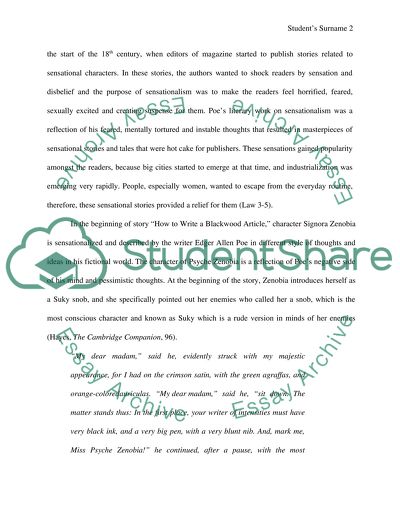Cite this document
(E.A. Poe's Attitude Towards Sensationalism in How to Write a Blackwood Book Report/Review, n.d.)
E.A. Poe's Attitude Towards Sensationalism in How to Write a Blackwood Book Report/Review. Retrieved from https://studentshare.org/sociology/1400931-ea-poe-s-attitude-towards-sensationalism-in-his
E.A. Poe's Attitude Towards Sensationalism in How to Write a Blackwood Book Report/Review. Retrieved from https://studentshare.org/sociology/1400931-ea-poe-s-attitude-towards-sensationalism-in-his
(E.A. Poe'S Attitude Towards Sensationalism in How to Write a Blackwood Book Report/Review)
E.A. Poe'S Attitude Towards Sensationalism in How to Write a Blackwood Book Report/Review. https://studentshare.org/sociology/1400931-ea-poe-s-attitude-towards-sensationalism-in-his.
E.A. Poe'S Attitude Towards Sensationalism in How to Write a Blackwood Book Report/Review. https://studentshare.org/sociology/1400931-ea-poe-s-attitude-towards-sensationalism-in-his.
“E.A. Poe'S Attitude Towards Sensationalism in How to Write a Blackwood Book Report/Review”, n.d. https://studentshare.org/sociology/1400931-ea-poe-s-attitude-towards-sensationalism-in-his.


